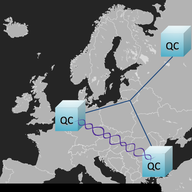
Introduction to the Quantum Internet
• 6 min read
Please read this guest post about the quantum Internet by Stephanie Wehner, Professor at the University of Technology in Delft, The Netherlands.

Articles
Likes on articles

Vesna Manojlovic is Community Builder at RIPE NCC. Vesna joined the RIPE NCC as a Trainer in 1999. In 2003, she took responsibility for developing and delivering advanced courses, such as RPSL, Routing Registry, DNSSEC and IPv6. In 2008, she lead efforts to establish IPv6 RIPEness as a measure of IPv6 deployment among LIRs. In 2011, she joined the Science Division as Manager of the Measurements Community Building team; in 2015 she moved to Communications Department as Senior Community Builder, with a focus on organising hackathons. Vesna gives presentations at many technical conferences and workshops, and enjoys visiting hackerspaces. Vesna received a Batchelor of Sciences Degree in Computer Science and Informatics from the School of Electrical Engineering, University of Belgrade. She has three children.

• 6 min read
Please read this guest post about the quantum Internet by Stephanie Wehner, Professor at the University of Technology in Delft, The Netherlands.
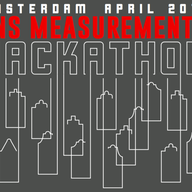
• 11 min read
Reporting from the hackathon is difficult: the spirit of the event lies in direct participation and shared experiences. In this article, we celebrate the achievements of the fifth RIPE NCC hackathon, document and promote results, and create a memento for participants.

• 4 min read
As a part of the RIPE NCC's ongoing engagement with the Internet Exchange Points (IXPs) we have organised a code sprint. Researchers and IXP developers got together to continue work on the projects started during the IXP Tools hackathon, and achieved new, tangible results.


• 3 min read
Thursday, 30 March 2017 - Live blogging from RightsCon in Brussels, Day Two.

• 6 min read
It is my first time at RightsCon in Brussels, and I will be sharing my impressions by updating this article several times today.

• 1 min read
In March 2017, the sixth instalment of RightsCon will be happening in Brussels. This large event is one of the places for conversation about how to keep the internet open, free, and secure. RIPE NCC staff will be present, with live-blogging throughout the three day event. Stay tuned!

• 7 min read
In this article, we give one example of the possible communities that are now easier to build around RIPE Atlas probes. With the tagging of similar probes, existing communities can use additional tools for creating and analysing RIPE Atlas measurements, such as "IXP Country Jedi", to create their o…
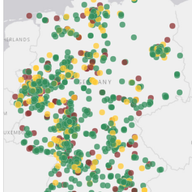
• 3 min read
Here is an example of how cross-pollination between two or more communities can create success. An overlap between IETF participants, RIPE Atlas users and listeners of a popular German podcast has led to growth in the deployment of RIPE Atlas probes (hardware devices that measure Internet infrastru…

• 3 min read
At the RIPE NCC, we are grateful for the contribution RIPE Atlas ambassadors make to the success of the RIPE Atlas measurements platform. In this article, we focus on a handy RIPEstat tool that can be used to visualise the results of their efforts. The tool provides a historical view of country-spe…

• 8 min read
The community’s reaction to our cloud proposal at RIPE 82 was stronger than we expected. We think it’s worth re-starting this discussion, and the first step is to check that we’ve heard you correctly.

• 40 min read
The 15th annual meeting of the Internet Governance Forum (IGF) will be taking place online from 9-17 November with pre-events happening from 2-6 November. Our staff will be sharing key moments and takeaways from the sessions they attend. Check this page each day for the latest issues, arguments and…
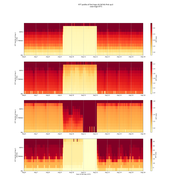
• 7 min read
RIPE Atlas probes actively measure Internet connectivity through a variety of measurement types. In this article, we take a closer look at what probes can tell us about outages.
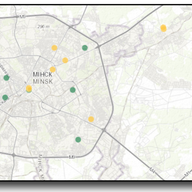
• 6 min read
On 9 August, Belarus experienced country-wide Internet outages. Here's a first glance at what our tools and datasets have to tell us about the scale of these outages and their impact.

• 11 min read
We attended the Digital Campus online event that went on for 24 hours over 3 days in more than 30 countries simultaneously. The aim is to connect young innovators around the globe using technology to support society.

• 31 min read
The 12th edition of EuroDIG, the pan-European Internet governance event, is taking place from 10-12 June 2020 online. You can expect sessions on technical and operational issues, security, justice, public empowerment, lessons learned from the COVID-19 pandemic and more. RIPE NCC staff at the event …

• 6 min read
We take on the Quantum Internet simultaneously in six nodes across Europe on 5-6 November 2019. Join us in Delft, Dublin, Geneva, Padua, Paris or Sarajevo!
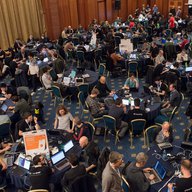
• 7 min read
To prepare you for the upcoming Open Source WG discussion at RIPE 78, we are re-publishing our report from the most successful IETF Hackathon that took place in March 2019.
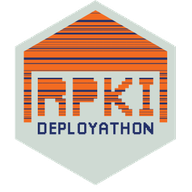
• 5 min read
The RIPE NCC and Juniper Networks co-hosted the first Deployathon on RPKI – a two-day event that brought together network professionals from 7 countries to work on practical aspects of routing security.
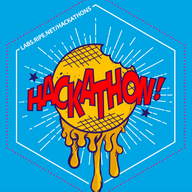
• 8 min read
Welcome to the anticipated 2018 Quantum Internet Hackathon report. Here we share the results of last months’ successful hackathon held at the Volkshotel in Amsterdam.
“CAIDA wrote a blog post about the hackathon results: https://blog.caida.org/best_available_data/2016/11/11/the-remote-peering-jedi/”
... and two more mentions: Euro-IX Newsletter http://us7.campaign-archive2.com/?u=99dcdddc67f83b726fa293b31&id=4dcbc6b909&e=c4430325ce & #37 Weekly Internet Infrastructure Updates from Christian Koch: http://us12.campaign-archive1.com/?u=d732e9c6adbea385abc856c8d&id=950ca992ef
CAIDA wrote a blog post about the hackathon results: https://blog.caida.org/best_available_data/2016/11/11/the-remote-peering-jedi/
Geert Jan, thank you for helping us to grow RIPE Atlas in the "not so easy" parts of the world! As for your questions, we considered them, and I would like to separate two aspects: - We are indeed distribute probes (also thanks to ambassadors like you) to all parts of the world. However, probes are still predominantly deployed in the parts of the Internet that is already covered pretty well - maybe that's due to the nature of the ”network effect”. - This specific article was not looking into the numbers of probes that were lost, postponed, or for other reasons *never connected*. All probes in the analysis and the graphs above were connected at some point in their lifetime, and then either continued to live or "died”. We will continue to observe RIPE Atlas probe distribution, deployment and lifetime, and we will publish an update when there are any new developments.
Showing 43 comment(s)